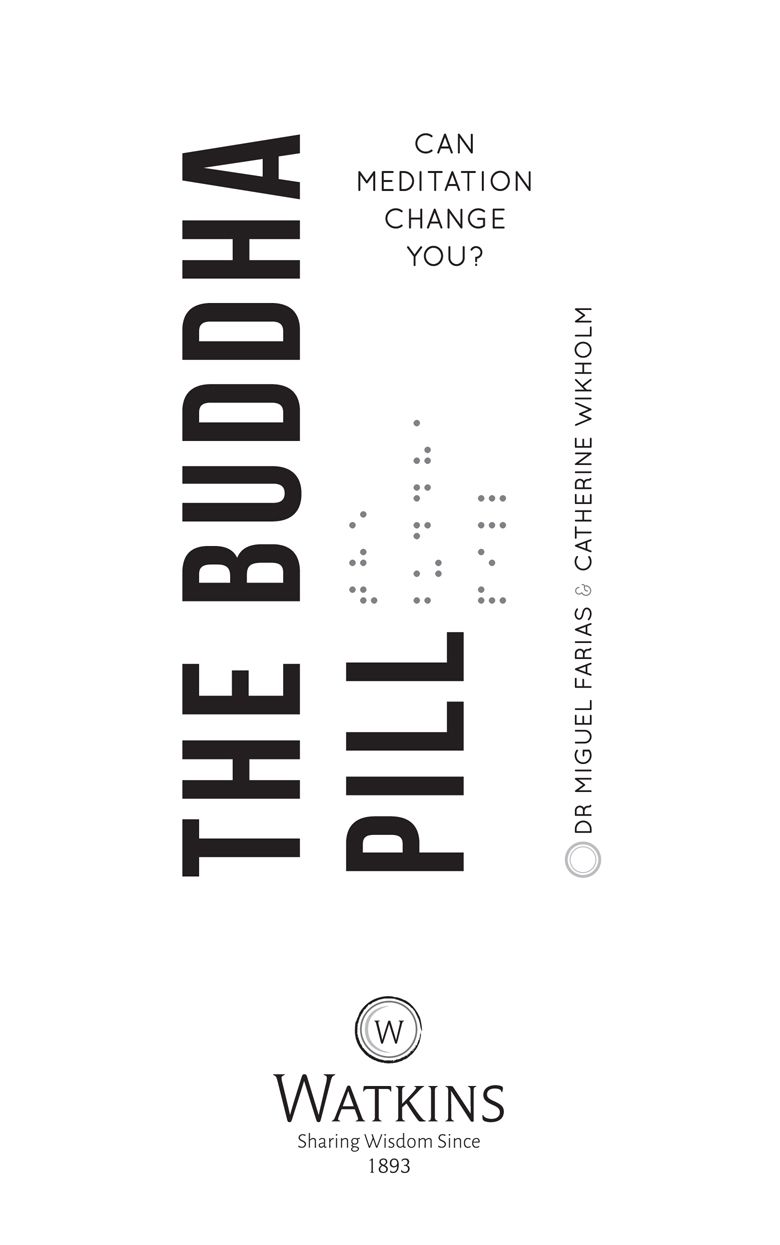

The story of Watkins Publishing dates back to March 1893, when John M. Watkins, a scholar of esotericism, overheard his friend and teacher Madame Blavatsky lamenting the fact that there was nowhere in London to buy books on mysticism, occultism or metaphysics. At that moment Watkins was born, soon to become the home of many of the leading lights of spiritual literature, including Carl Jung, Rudolf Steiner, Alice Bailey and Chgyam Trungpa.
Today our passion for vigorous questioning is still resolute. With over 350 titles on our list, Watkins Publishing reflects the development of spiritual thinking and new science over the past 120 years. We remain at the cutting edge, committed to publishing books that change lives.
DISCOVER MORE...
 |  |  |
| Read our blog | Watch and listen to our authors in action | Sign up to our mailing list |
JOIN IN THE CONVERSATION
 WatkinsPublishing
WatkinsPublishing
 @watkinswisdom
@watkinswisdom
 WatkinsPublishingLtd
WatkinsPublishingLtd
 +watkinspublishing1893
+watkinspublishing1893
Our books celebrate conscious, passionate, wise and happy living. Be part of the community by visiting
www.watkinspublishing.com
This book is a balanced assessment from authors who are experienced in the practice of meditation and who can shed light on the range and scope of the often over-enthusiastic claims made regarding the positive benefits of meditation. It is a provocative read, wise, balanced and fair even in its treatment of the dark side of meditation. If you meditate or wonder if you should, this is the one book you must read.
Ralph W. Hood, Jr., Ph.D., Former President of the Society for the Psychology of Religion and Spirituality, American Psychological Association
To change a human being that is power. Whoever has it has got the key to a timeless want, to be able to free, or control, people. Farias and Wikholm give us a readable, thoughtful, and in-depth look at the promises and pitfalls of meditation as a human change procedure. It is imported to the West as a simple but powerful method to relieve suffering and promote compassion. Does it work? The answer turns out to be complicated. From real-world encounters with prison convicts combined with research on mindfulness in psychotherapy, and examination of the roots of Buddhism, the notion that meditation heals is given honest, in-depth examination. This book keeps your attention; you dont want to put it down. It provides an accurate record what mindfulness can and cannot do for depression, suffering, compassionate behavior, and a whole gambit of helpful, helpless, and harmful human behaviors. It helps us make wise decisions about it.
Raymond F. Paloutzian, Ph.D., editor of the International Journal for the Psychology of Religion
Much has been written about meditation, some of it making wild claims about how it can bring about personal change. But this is a book with a difference. Entertainingly written and always with an eye to the scientific and human evidence, it examines the good and the bad of meditation. An excellent read.
Gordon Claridge, Emeritus Professor of Abnormal Psychology at the University of Oxford and author of Sounds from the Bell Jar: Ten Psychotic Authors and Schizotypy: Implications for Health and Illness
In this excellent book, Dr Farias and Wikholm develop an account that shows the ambiguity of meditation and its effects on peoples lives which can be positive but also, perhaps to our surprise, negative. All those interested in meditation and public health should read this book.
Gavin Flood FBA, Professor of Hindu Studies and Comparative Religion, University of Oxford, and author of The Blackwell Companion to Hinduism and The Tantric Body
This is a book bound to ruffle many feathers among advocates of meditation. It turns out that the evidence of benefit is not as unequivocal as many of us suppose. This is a highly readable, nontechnical and entertaining book that takes a closer look at the science behind the claims made about meditation.
Stephen Law, provost of the Centre for Inquiry, UK, senior lecturer in philosophy at Heythrop College, University of London, and author of The Philosophy Gym and Believing Bullshit: How Not to Get Sucked into an Intellectual Blackhole
CONTENTS
INTRODUCTION
My interest in meditation began at the age of six when my parents did a course on Transcendental Meditation. I didnt realize it then, but I was effectively being introduced to the idea that meditation can produce all manner of changes in who we are and in what we can achieve. Mind-over-matter stories are both inspiring and bewildering, hard to believe yet compelling. They have stirred me deeply enough to dedicate almost two decades of my life researching what attracts some people to techniques like meditation and yoga and whether, like many claim, they can transform us in a fundamental way.
This book tells the story of the human ambition for personal change, with a primary focus on the techniques of meditation and yoga. Hundreds of millions of people around the world meditate daily. Mindfulness courses, directly inspired by Buddhist meditation, are offered in schools and universities, and mindfulness-based therapies are now available as psychological treatments in the UKs National Health Service. Many scientists and teachers claim that this spiritual practice is one of the most efficient and economic tools of personal change. Yoga is no less popular. According to a recent survey by the Yoga Health Foundation, more than 250 million people worldwide practise it regularly. Through yoga we learn to notice thoughts, feelings and sensations while working with physical postures. Often, yoga practice includes a period of lying or sitting meditation.
Psychologists have developed an arsenal of theories and techniques to understand and motivate personal change. But it wasnt psychology that produced the greatest surge of interest of the twentieth century in this topic it was meditation. By the 1970s millions of people worldwide were signing up to learn a technique that promised quick and dramatic personal change. Transcendental Meditation was introduced to the West by Maharishi Mahesh Yogi, and quickly spread after the Beatles declared themselves to be followers of this Indian guru. To gain respectability Maharishi sponsored dozens of scientific studies about the effects of Transcendental Meditation, in academic fields ranging from psychophysiology to sociology, showing that its regular practice changed personality traits, improved mood and wellbeing and, not least, reduced criminality rates.
The publicity images for Transcendental Meditation included young people levitating in a cross-legged position and displaying blissful smiles. I recall, as a child, staring at the photographs of the levitating meditators used in the advertising brochures and thinking Can they really do that? My parents enthusiasm for meditation, though, was short-lived. When I recently asked my mum about it, she just said, It was a seventies thing; most of our friends were trying it out.
Next page
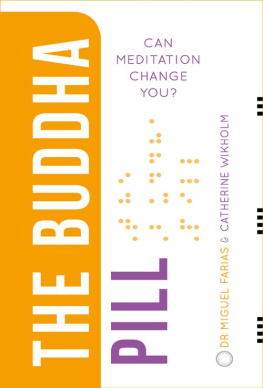
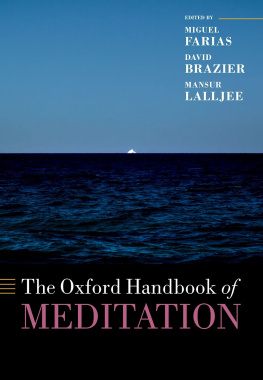



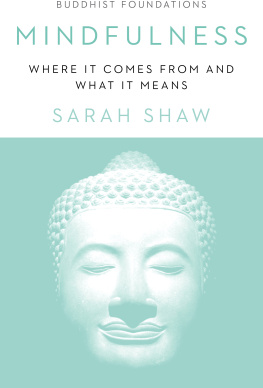
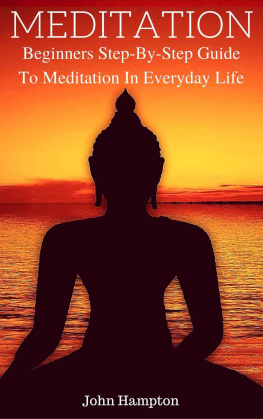
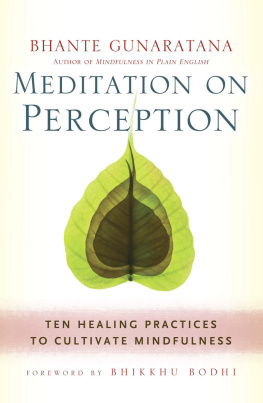

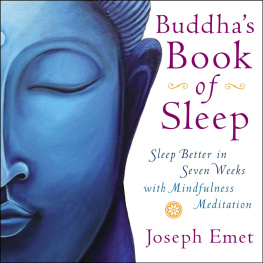
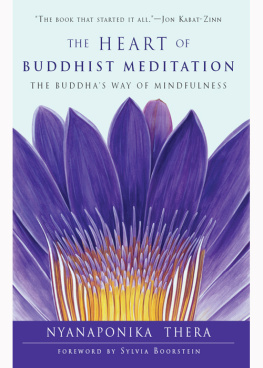
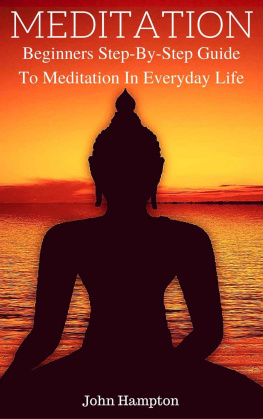





 WatkinsPublishing
WatkinsPublishing @watkinswisdom
@watkinswisdom WatkinsPublishingLtd
WatkinsPublishingLtd +watkinspublishing1893
+watkinspublishing1893